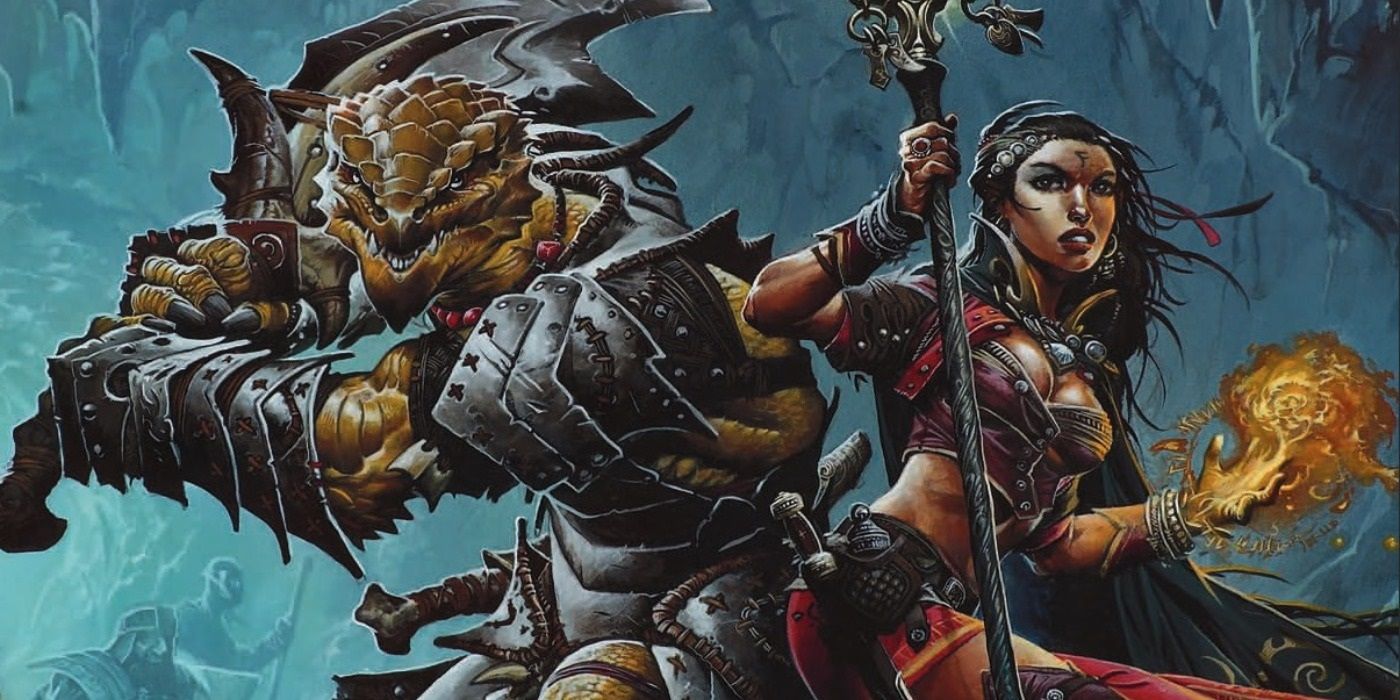There are some classes in Dungeons & Dragons that are easier to play than others. This makes them the ideal choice for new players, as it gives them a chance to learn how the game is played without needing to keep track of lots of abilities and powers.
D&D players who have been wanting to experience the game since their youth will often have lots of characters planned out in their minds. D&D had its best-ever year of sales in 2019, as lots of people have been attracted to the hobby through streaming shows. This has brought a lot of fresh eyeballs to the hobby, with many people only being introduced to the mechanics of D&D within the past few years. When the time comes to try out the game for themselves, they might need more guidance when crafting their character than people more familiar with tabletop gaming.
Click the button below to start this article in quick view.
The complexity of a D&D character in terms of playstyle often boils down to the number of spells and special abilities they possess, the former of which can be hard to keep track of. As such, there are some classes that are easy to play, due to the fact that they only need to focus on doing one or two types of action. DMs should recommend these classes for new players, with the option of switching to a more complicated class once they have learned the ropes.
Easy D&D Class Choice: Fighter (Champion)
Fighters have always been the easiest D&D classes to play. This is due to their lack of special abilities, as they’re focused entirely on using weapons and fighting in heavy armor. There have been a few overpowered Fighter builds over the years, like the infamous dart-users from Advanced Dungeons & Dragons, but they’re generally easier to play than Barbarians, Paladins, and Rangers.
This is true in the current edition of D&D, as most players will only need to manage the Action Surge and Second Wind abilities in an average game. Fighters become a lot more complicated when they take the Battle Master or Eldritch Knight Dungeons & Dragons subclasses, as these add a ton of special abilities/spells to the character. As such, the best Fighter subclass for new D&D players is the Champion, as all of their abilities are passive effects that will rarely change over the course of the campaign.
Easy D&D Class Choice: Rogue (Assassin or Thief)
Rogues in Dungeons & Dragons are a little more complicated to play than Fighters, as the player will quickly need to become familiar with the skill system and action economy. They’re still less complicated than the other classes in the Player’s Handbook, as their role in combat will boil down to learning how Sneak Attack works.
Like the Fighter, the Rogue can become more complex by adding a subclass. The Arcane Trickster D&D subclass gives the Rogue a spell list, so it might not be suitable for all players. The Assassin and Thief are far easier to learn, with the Assassin gaining extra combat and disguise abilities, while the Thief gains action and skill abilities, all of which are far easier for newer Dungeons & Dragons players to manage.
Easy D&D Sidekick Class Choices (Expert, Spellcaster, Warrior)
Tasha’s Cauldron of Everything introduced D&D rules for Sidekicks. These are intended to be quasi-characters that have fewer abilities than a full character, allowing them to be played by a DM or as a second character by one player. This allows groups that are short-handed to have an extra character who can fill a vital slot, without being too complicated to run. There are three Sidekick classes, and they’re simplified versions of existing classes. The Expert is like the Rogue, the Warrior is like the Fighter, and the Spellcaster can act as a Wizard, Cleric, Druid, Bard, or Warlock.
Sidekicks can also be used as introductory classes for new D&D players. Their abilities are limited and simple, giving newer players a chance to witness how D&D plays from a backseat perspective. This will give them the chance to learn the mechanics of the game, by virtue of applying their handful of abilities wherever possible. Sidekicks are also perfect for younger D&D players, as it gives them the chance to play as one of the monsters from Dungeons & Dragons.
About The Author

